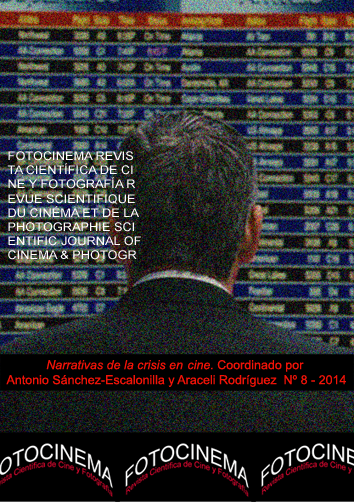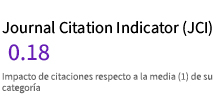La sociedad japonesa de posguerra en Batallas sin honor ni humanidad: Kinji Fukasaku y el yakuza-eiga
DOI:
https://doi.org/10.24310/Fotocinema.2014.v0i8.5951Abstract
El presente artículo analiza la sociedad japonesa de posguerra a través del yakuza-eiga de Kinji Fukasaku. En concreto, este artículo se centra en la saga Batallas sin honor ni humanidad, que narra la ascensión de un ex soldado en una familia mafiosa de la ciudad de Kure. La saga se inicia al finalizar la Segunda Guerra Mundial, haciendo avanzar sus tramas hasta inicios de la década de los 70. Batallas sin honor ni humanidad es la visión de un director que vivió la posguerra y que pudo observar cómo la sociedad japonesa se transformó desde el fin de la guerra, en 1945, hasta el presente. Para explicar su postura, Fukasaku centra la saga en la lucha que se produce en los bajos fondos de la Prefectura de Hiroshima, donde varias familias de la yakuza peleaban por el territorio. A través de esa batalla criminal, Kinji Fukasaku expone los avances y contradicciones de un país en reconstrucción.
Palabras clave:
Fukasaku; cine; yakuza-eiga; posguerra
Keywords:
Fukasaku; cine; yakuza-eiga; postwar
Downloads
Metrics
Publication Facts
Reviewer profiles N/A
Author statements
Indexed in
-
—
- Academic society
- N/A
- Publisher
- Universidad de Málaga
Downloads
Published
How to Cite
Issue
Section
License
All contents published in Fotocinema Revista científica de cine y fotografía are protected under the Creative Commons Attribution-NonCommercial-ShareAlike 4.0 International (CC BY-NC-SA 4.0) license. All about this license is available in the following link: <http://creativecommons.org/licenses/by-nc-sa/4.0>
Users can copy, use, redistribute, share and exhibit publicly as long as:
- The original source and authorship of the material are cited (Journal, Publisher and URL of the work).
- It is not used for comercial purposes.
- The existence of the license and its especifications are mentioned.
There are two sets of authors’ rights: moral and property rights. Moral rights are perpetual prerogatives, unrenounceable, not-transferable, unalienable, imprescriptible and inembargable. According to authors’ rights legislation, Fotocinema. Revista científica de cine y fotografía recognizes and respects authors moral rights, as well as the ownership of property rights, which will be transferred to University of Malaga in open access. The property rights are referred to the benefits that are gained by the use or the dissemination of works. Fotocinema. Revista científica de cine y fotografía is published in an open access form and it is exclusively licenced by any means for doing or authorising distribution, dissemination, reproduction, , adaptation, translation or arrangement of works.
Authors are responsable for obtaining the necessary permission to use copyrighted images.














13.png)



